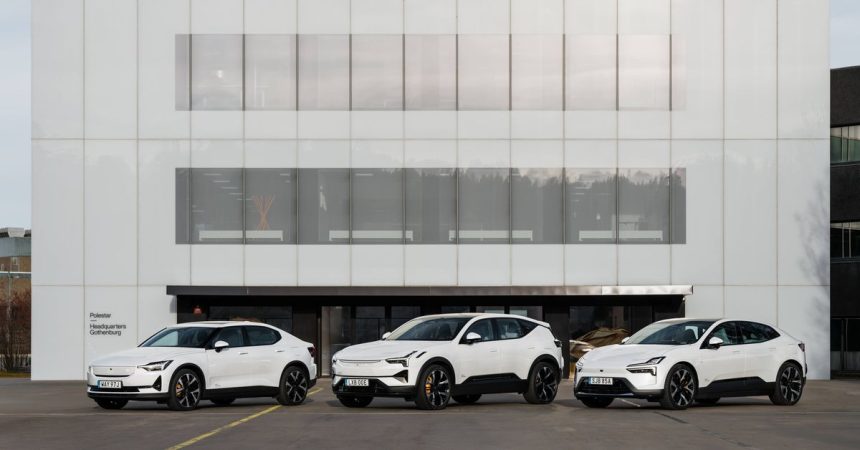Polestar, the Swedish electric vehicle manufacturer with Chinese ties, is navigating a complex landscape of regulatory hurdles, market shifts, and financial challenges. Despite the potential for a US sales ban due to recent legislation targeting connected vehicle software from China, the company is forging ahead with new product development, exemplified by the announcement of the Polestar 7, a compact SUV slated for European production. While details about the Polestar 7 remain scarce, the company has emphasized its commitment to imbuing the vehicle with distinctive “Polestar DNA,” positioning it within the rapidly expanding global compact SUV segment. This strategic move comes as Polestar acknowledges the US market’s increasing uncertainty and focuses on expansion within Europe, specifically targeting the burgeoning French EV market.
The company’s recent business update, delivered by newly appointed CEO Michael Lohscheller, notably sidestepped the looming US regulatory challenges. This omission, coupled with the focus on European expansion, signals a recalibration of Polestar’s strategic priorities. Previously, the company had prioritized the US market, launching the Polestar 3, a two-row SUV manufactured in South Carolina to capitalize on US government incentives under the Biden administration. However, the changing political landscape and the potential reversal of these incentives under a new administration necessitate a reassessment of Polestar’s US strategy. While the company maintains its commitment to the US market, the focus has shifted towards ensuring compliance with the new regulations, requiring significant adaptations to hardware, software, and supplier relationships.
Polestar’s financial performance adds another layer of complexity. The company reported a net loss of $323 million in its third-quarter earnings, accompanied by an 8% decline in vehicle sales compared to the same period in the previous year. Furthermore, Polestar revised its financial outlook for 2024, anticipating a decline in revenue and a negative gross profit margin. This downward revision is attributed to lower-than-expected sales of the Polestar 3 and Polestar 4 models. The combination of regulatory uncertainty in the US, shifting market dynamics, and financial headwinds presents a significant challenge for Polestar.
Despite these challenges, Polestar’s leadership remains optimistic about the company’s long-term prospects. CEO Lohscheller characterized 2024 as a “transitional year,” emphasizing the company’s focus on cost reduction, efficiency improvements, and strategic product development. He expressed confidence in Polestar’s positioning for 2025 and beyond, projecting positive adjusted earnings and free cash flow by 2027. This optimistic outlook hinges on the successful execution of the company’s strategic adjustments, including adapting to new regulations, expanding into new markets, and streamlining operations.
The development and launch of the Polestar 7 represent a crucial element of this strategy. By entering the competitive compact SUV segment, Polestar aims to capitalize on the segment’s rapid growth and capture a significant market share. The company’s emphasis on the “Polestar DNA” suggests a focus on delivering a unique and compelling product that differentiates itself from competitors. The success of the Polestar 7 will be a key factor in determining the company’s ability to achieve its ambitious financial targets.
In conclusion, Polestar faces a multifaceted challenge. The potential US ban necessitates a strategic pivot towards other markets, while financial pressures demand operational efficiency and cost control. The company’s future hinges on its ability to navigate these challenges effectively, adapt to evolving market conditions, and deliver compelling products like the Polestar 7. The coming years will be crucial for Polestar as it strives to achieve its long-term vision of sustainable profitability and establish itself as a leading player in the global electric vehicle market. The company’s commitment to innovation and its focus on the expanding European market offer a path forward, but success will require careful execution and a willingness to adapt to the dynamic landscape of the automotive industry.



